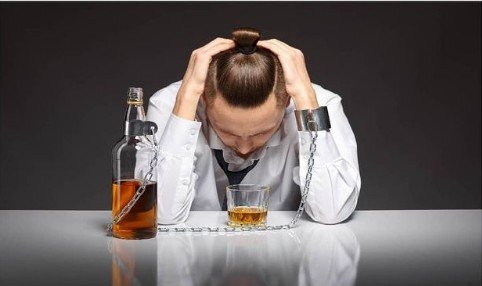
Alcohol is one of the addictions that are very difficult to control or stop. To stop drinking alcohol needs a lot of determination and self-perseverance. No matter how difficult and obsessed you are with alcohol, you can still overcome the addiction and come out of it.
How to Stop Drinking Alcohol
Read: How to quit smoking naturally
-
Write Your Quitting Reasons.
Whatever your reasons are for trying to stop drinking alcohol you need to write them down carefully. Write all of these reasons out to build your motivation for quitting. Your top reasons for quitting could be that you always drink too much after having a single drink, you get in fights with your partner when you drink, and health reasons. These are great reasons to quit. Keep this list so you can look at it when you’re feeling tempted to drink.
-
Set a Date That You Want to Stop Drinking.
Setting a date means that you want to give yourself a target. This gives you a clear starting time to aim for. After you set a date, begin preparation to meet your target. Leave as many reminders as you have to. Circle the date on your calendar, set an alarm on your phone, and or leave post-its around your home.
-
Take Baby Steps.
Quitting alcohol may not be an automatic movement. You will need to take baby steps to achieve your aim especially if you are an addict. Begin with keeping your drinking limited to a few days or you might want to work your way up to quitting entirely. This is a personal choice for you. Remember that limiting your drinking to a few days doesn’t mean you can go crazy and binge on those days. This is just as harmful as drinking throughout the week.
-
Consult Your Doctor.
See your doctor for a health checkup before quitting. At your appointment, be honest with your doctor about how much you really drink. Your doctor needs that information to judge your overall health and recommend the best strategies to reach your goal. In some cases, your doctor might prescribe medication to help reduce your alcohol cravings. This is usually only for heavy drinkers. If you’ve been an alcoholic for several years, your doctor might recommend going through a professional detox program. This is because alcohol withdrawal could be dangerous for heavy drinkers.
-
Get Rid of Alcohol Environment and Company.
Remove all the alcohol from your home and avoid friends and company that make you drink alcohol. If you usually keep alcohol in your home, then you’ll feel a stronger temptation to drink. You’ll be much more successful if you get rid of everything. If you have roommates or partners in your home, ask for their cooperation. At the very least, have them hide or lock up their alcohol so you can’t get it. Identify the triggers that make you want to drink and do your best to avoid them. Common triggers include stress, being around alcohol, festive events like birthdays, or even a certain time of day.
- Get a Distraction and Get Busy.Try to stay active to forget about temptations and urges to control your cravings. Urges are much worse when you have nothing to do, so stay as busy as up you can. Schedule out your days with chores, work, errands, and healthy habits like exercise to keep your mind off alcohol. Activities like meditation and exercise have a good success rate for helping suppress cravings. Try doing one of these activities when you feel like drinking. You could tell yourself that every time you have a craving, you’ll go for a walk, do some cleaning or talk to someone you can trust.
-
Join a Support Group.
These groups are designed to help people just like you and provide an outlet for support. Join a local support group and attend meetings to talk with other people like yourself. You’ll feel much less alone when you’re part of a community.
-
Treatment and Detox.
You may need treatment and detox to help you in your journey to stop alcohol especially if you are a heavy drinker. You might go through withdrawal symptoms if you’ve been a heavy drinker for a long time. In this case, it’s much safer to go through a professional detox program at a treatment center. This way, you can get yourself through the withdrawal period with fewer complications than if you tried it at home. Ask your doctor for a recommendation on the best treatment center for you. After detox, you may experience some common withdrawal symptoms like sweating, shaking, rapid heartbeat, agitation or restlessness, nausea and vomiting, and insomnia. In rarer cases, withdrawal can cause seizures or hallucinations. Get emergency medical help if this happens.



